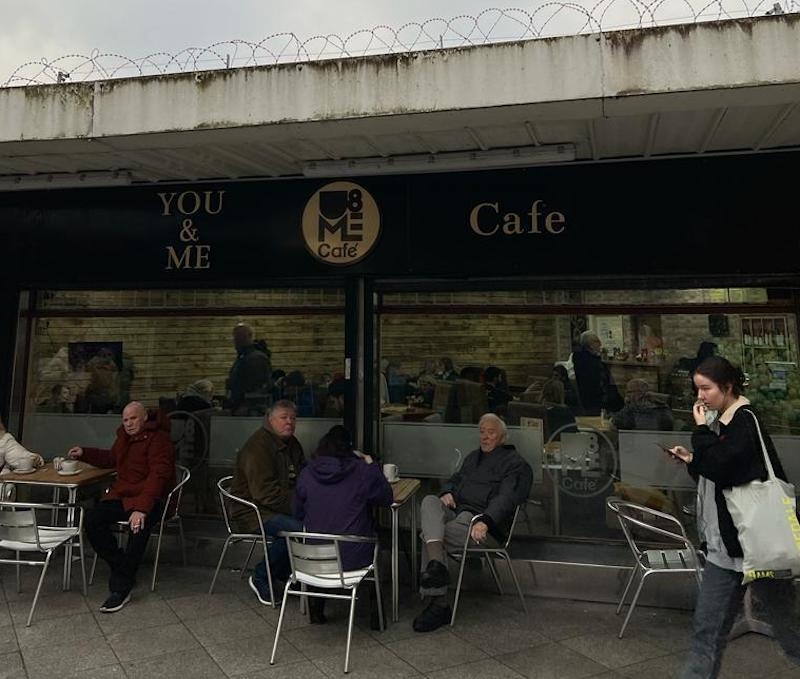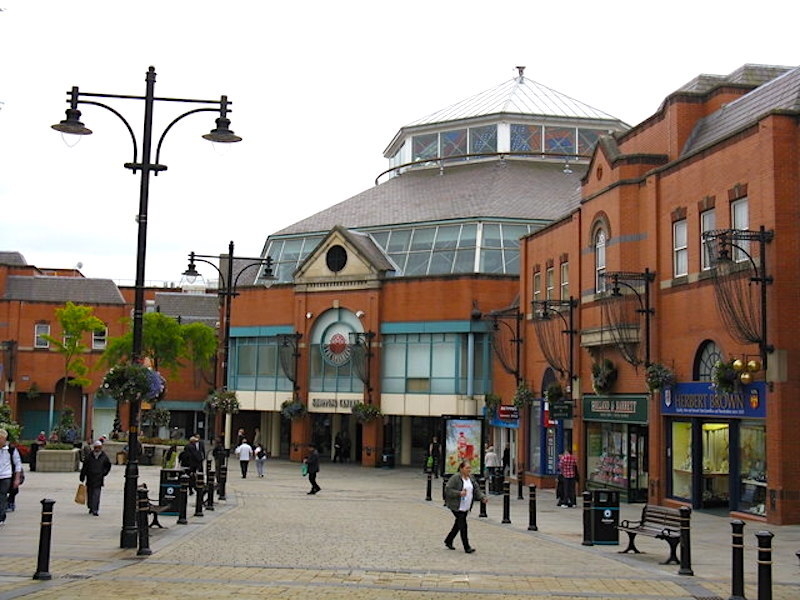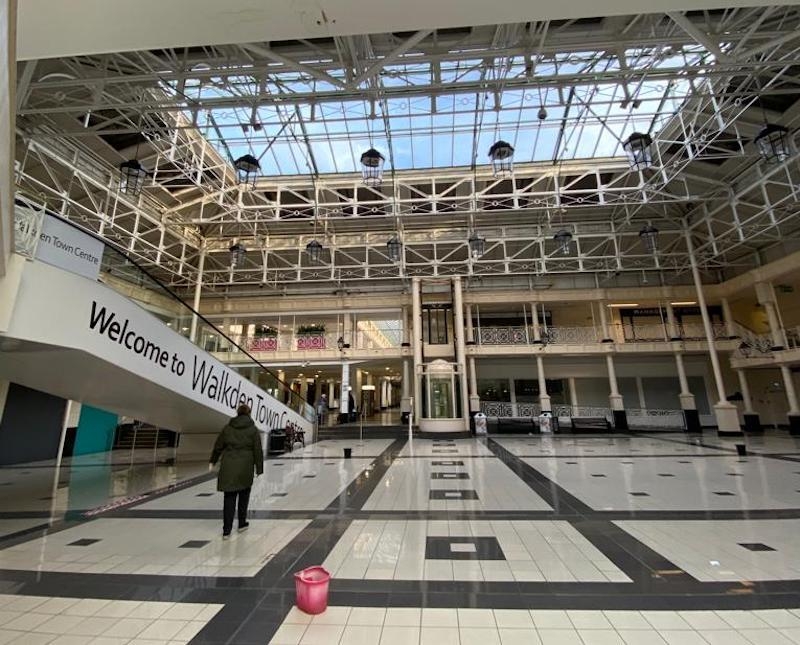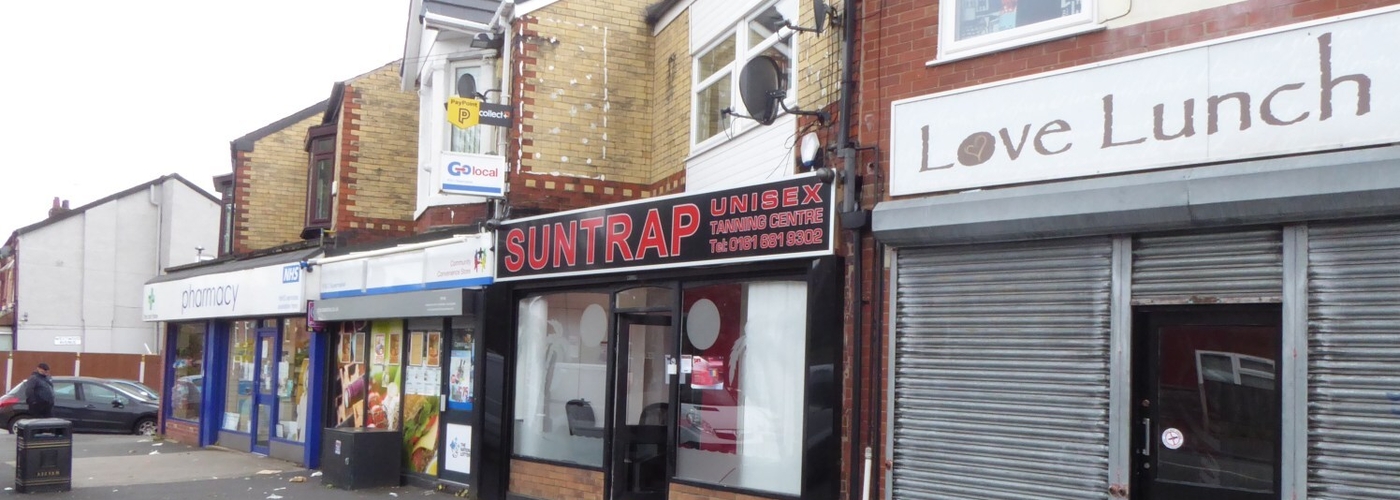Sean Fielding argues that the autumn statement could have a huge impact on Greater Manchester high streets
“I’m not like the rest of them”, said John (not his real name) as he took the weight off his crutches, sitting down across the table from me in the John Wesley room of the Holy Family Church, Failsworth.
It was a dark Tuesday evening in autumn 2017 and this was my monthly councillor’s surgery, a generally quiet session that I held twice per month for my nine years in office. With emails and social media, only people with the most serious problems, or those from the shrinking number of the "digitally excluded", tended to come in person. John was one such person.
Cuts to welfare these last twelve years have taken millions from local economies all over Greater Manchester
John had a collection of letters from the Department of Work and Pensions including one calling him to Manchester, somewhere he told me he hadn’t been in at least five years, for a Work Capability Assessment.
Benefits are under the microscope again this month as Jeremy Hunt decides whether or not to raise benefits in line with inflation. Not doing so would contribute to the £35bn cuts he is making. It would also plunge many people like John into poverty.
Back to that autumn night: “Why are they hounding me, I’m one of the genuine ones?” John followed on from his opening gambit.
The right-wing papers have done an incredible job of demonising those on welfare. So much so that many of those receipt of welfare benefits themselves, having often struggled to navigate the system to obtain them, question the authenticity of their fellow claimants.

Serious implications
When a councillor, I supported many people, John included, through the cruel Work Capability Assessments, which had de facto targets for the number of people to find fit for work. Depressingly, when those being made to go through a process which had been described as crude and inhumane by campaigners approached me for help, they often introduced themselves just like John did.
The thing is that cases like John’s, where somebody is unable to work at all, are not even in the majority. In January 2022 the proportion of claimants with no work requirements was barely over a quarter, at 26%.
The reality is indeed quite different to many people’s perception with 40% of claimants for Universal Credit claimants in work, receiving welfare payments to top up their wages because their employers don’t pay enough to live on. As well as those with disabilities, the other 60% includes people with caring responsibilities, who arguably save the NHS millions each year through the support they provide to their loved ones.
Unfortunately, these statistics are often dismissed, and news items covering extreme examples of social security recipients are pointed to as if they are representative of the entire system. Though surely if they were the norm, they wouldn’t be newsworthy?
The truth is that those in receipt of welfare benefits, both working and not, are those on the lowest incomes in this country. And that’s where the choice Jeremy Hunt makes later this month could have serious implications for local high streets.

An uphill struggle
It is no coincidence that those towns with the highest proportion of welfare claimants have the least vibrant high streets. People on the lowest incomes predominantly spend their money in the local economy and cuts to welfare these last twelve years have taken millions from local economies all over Greater Manchester. I know from experience of trying to revive the high street in Oldham that it’s an uphill struggle when local people simply don’t have enough cash in their pockets.
This is therefore one of the most visible and tangible reasons that the government’s mooted proposal not to increase benefits in line with inflation should be opposed.

Former Labour pollster Deborah Mattinson’s book Beyond the Red Wall explains that Red Wall voters felt their sense of place was under threat from the demise of the local high street. The best way to reinvigorate such places is not to make councils jump through hoops for funding to do a bit of superficial tarting up, but to put more money in the pockets of people who will spend it.
The most recent figures available are from 2019-20 and in that financial year the total welfare bill in Greater Manchester, excluding the state pension, pension credit and winter fuel allowance was £4.6 billion.
Using this figure for a crude calculation suggests that increasing benefits in line with inflation (around 10%) would put more than an additional £230 million into the pockets of people in Greater Manchester when compared with the trailed lower rise in line with wages (around 5%). Those who receive this cash would buy goods and services, on which they pay VAT, from local businesses employing local people, who themselves pay tax and national insurance on their earnings.

Making a case
Arguments about the links between poverty and mental wellbeing are all valid, but can seem abstract to those not affected. Though many people who need convincing about the benefits of a more generous welfare state live in areas home to tired shopping centres or high streets with empty units; and so the damage that cutting benefits does to the high street should receive considerably more airtime than it often does as part of a package of making the case for strong social security.
Clearly, it’s not just welfare policy that needs to be considered when trying to put more money in the pockets of people who will spend it. Strengthening the welfare state should be accompanied by more employers paying the real living wage and the end of public sector pay restraint. Though, with a decision to be taken imminently on benefit increases, it felt like a good time to shine a light on one of the less-discussed consequences of welfare not keeping pace with inflation.
About the author
Sean Fielding was the Leader of Oldham Council from May 2018 until May 2021, and is the youngest person to hold the position. Sean was also lead on Employment, Skills and Digital for the Greater Manchester Combined Authority. He now works for a communications consultancy and lives in central Manchester.
















